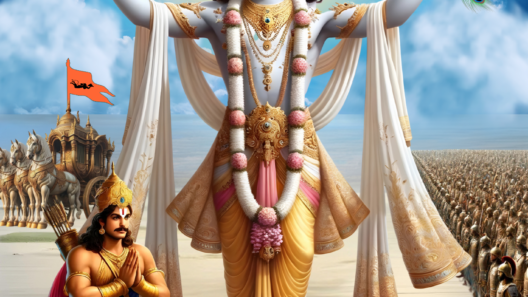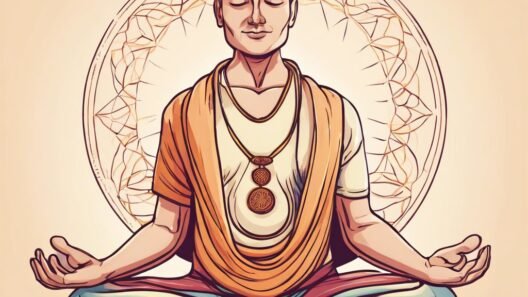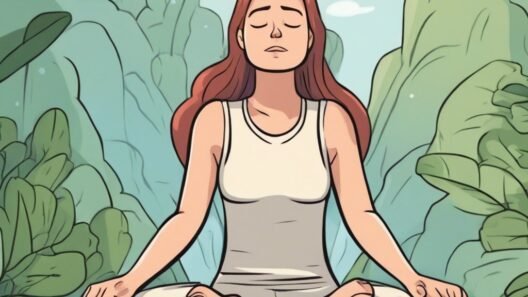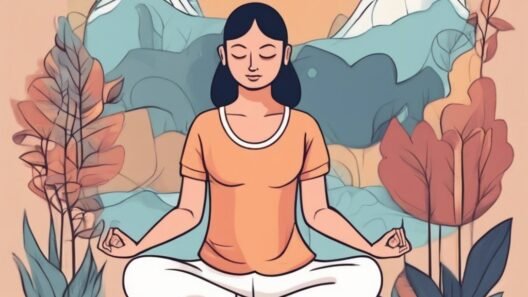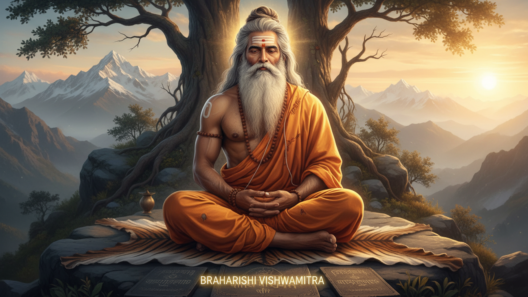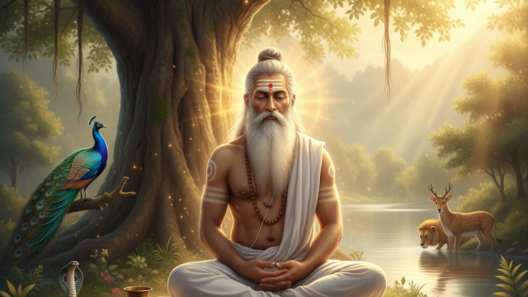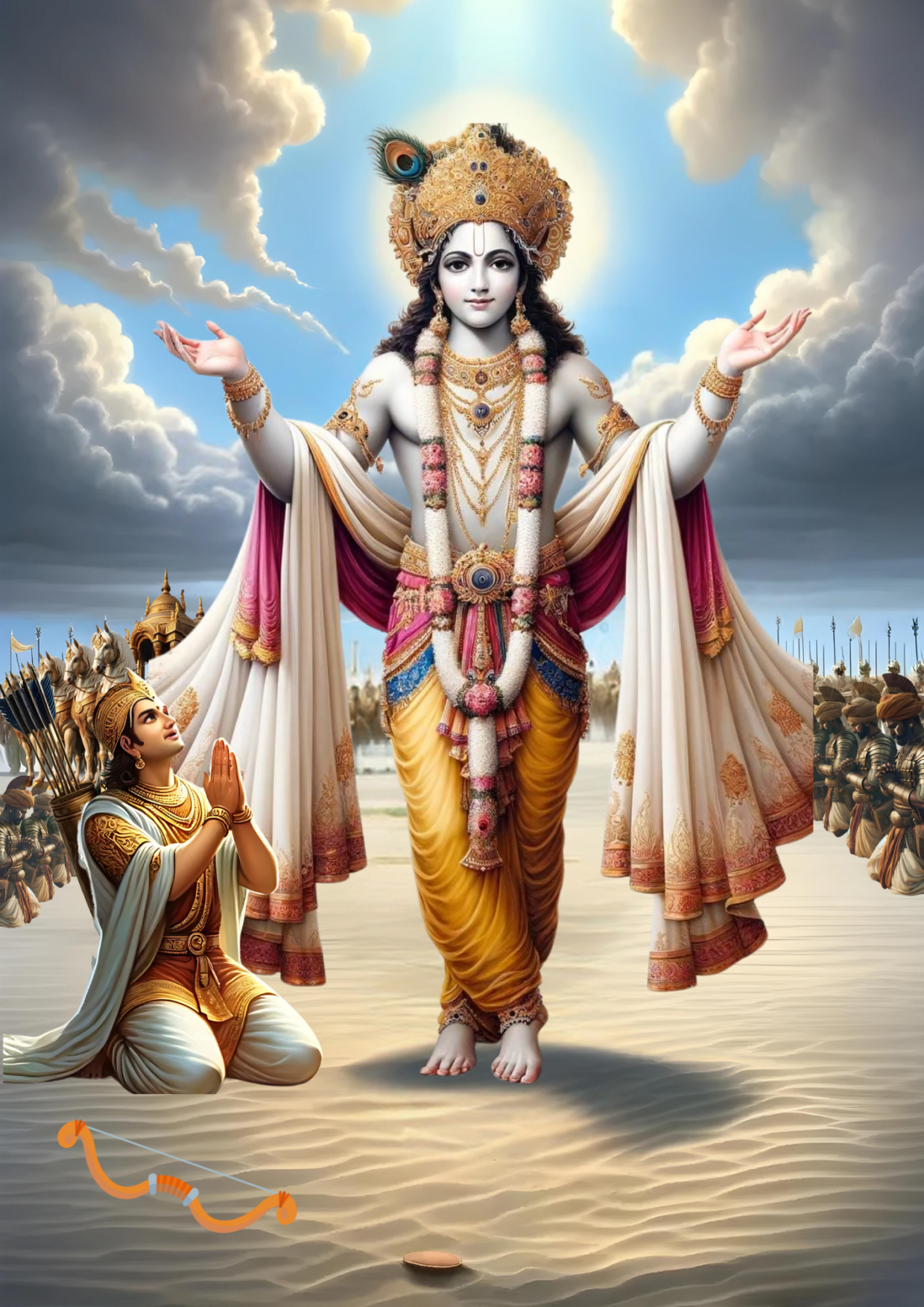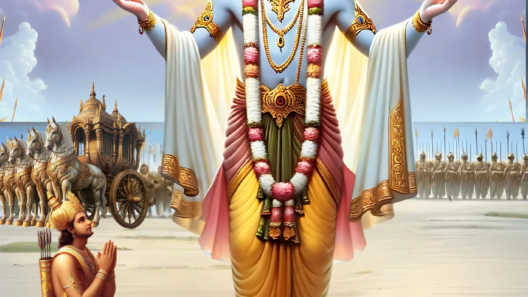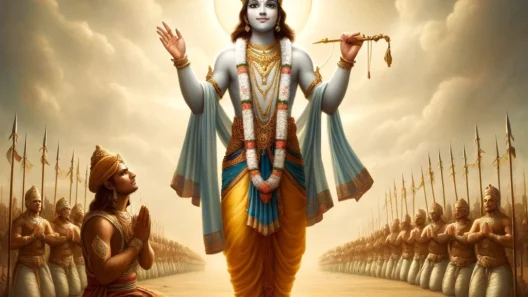The Battlefield of Kurukshetra: A Mirror to Our Inner Conflict
In the battle field when the epic Mahabharatha battle was about to begin, Arjuna asked his charioteer Lord Krishna to drive the chariot closer to the enemy’s army so that he could get a full glimpses of who are all there in the forefront of the enemy’s camp. Lord Krishna drove the chariot into the midst of the two armies assembled in the battle field and began to preach Arjuna which was called as Bhagavad Gita.
Arjuna, the great warrior and a benign soul got a closer look at the enemy’s army. He saw his revered great teachers, grand fathers, aged relatives, uncles , brothers (inimical cousins), former comrades and friends and other kings. When he saw his close blood relations of his own clan, he was immediately overcome by depression and immense sadness because of the thought that he has to kill all his blood relations of his own clan, and a great bloodshed is inevitable if he has to get back his kingdom for himself and his brothers. For a moment he forgot what all the wicked things his cousins lead by Dhuryodhana have done to him and his brothers. They had deprived their kingdom by deceit and drove them away to the forest with several conditions, not to return for 13 years.
As a benign soul Arjuna rightly felt that it is better not to kill all those of his nearer and dearer one’s in the name of war, and instead better forego his share in the kingdom. He threw away his bow and arrows and declared to Lord Krishna that he does not want to fight this calamitous war for achieving his selfish purpose, and he has decided to sacrifice everything than waging the war. Arjuna’s earlier enthusiasm for the war disappeared and his spirits sank with dejection.
Having understood the state of mind of Arjuna, Lord Krishna was compelled to advise Arjuna and convince him to fight the war that was thrust on him and his brothers. This advice of Lord Krishna went on to become the greatest philosophy of life ever told on the planet earth and it became the guiding light to mankind for all times.
There is a traditional belief that the original discourse comprised less than 200 stanzas and with the passage of time of 6000 years it has attained this present state.
It is also difficult to comprehend that Lord Krishna divided his counseling to Arjuna into different chapters classifying it in the battle field. Either Maharshi VedaVyasa has done it when he wrote Mahabharatha epic of which it is an integral part or it has been done in the later stages by the scholars.
Lord Krishna addressed the dispirited, depressed, sad and dejected Arjuna as follows.
Arjuna’s Grief: Why Even the Greatest Warriors Struggle
Stanza 1 :
कुतस्त्वा कश्मलमिदं विषमे समुपस्थितम् ।
Arjuna , how did this weakness crept into you at this hour ? This type of weakness is not befitting to great people. It is neither good for attaining divine order in the after world nor is it going to give glory in this world.
Krishna’s First Lesson: Rise Above Heart Weakness
Stanza 2:
क्लैब्यं मा स्म गमः पार्थ नैतत्त्वय्युपपद्यते ।
क्षुद्रं हृदयदौर्बल्यं त्यक्त्वोत्तिष्ठ परंतप ॥
Arjuna, do not become a coward. Give up this weakness of your heart.
कथं भिष्ममहं संख्ये द्रोणं च मधुसूदन ।
इषुभिः प्रतियोत्स्यामि पूजार्हावरिसूदन ॥
Arjuna said “ How can I kill my worshipful teachers Bheeshma and Dronacharya”.
Stanza 4:
गुरूनहत्वा हि महानुभावान् श्रेयो भोक्तुं भैक्ष्यमपीह लोके।
हत्वार्थकामांस्तु गुरूनिहैव भुंज्जीय भोगान्रुधिरप्रदिग्धान्॥
Arjuna continued “ Killing my revered great Gurus in the war will only fetch me my blood stained kingdom back, only to fulfil my sensual pleasures. It is better to live an alms than this ”.
Stanza 5:
न चैतद्विद्मः कतरन्नो गरीयो यद्वा जयेम यदि वा नो जयेयुः।
यानेव हत्वा न जिजीविषामस् तेऽवस्थिताः प्रमुखे धार्तराष्ट्राः॥
Arjuna continued “ We do not know who wins in this war. We do not like to kill our dear uncle Dhrutharastra’s sons. Therefore, I am confused whether to fight this war or not ”.
The human mind is the one obstacle which stands between Individual Consciousness and Universal Consciousness.
Key Lesson: The Symbolism of the Gita
The Battle Within You
On Page 1, we learn that the Bhagavad Gita is more than just an ancient story. It is a guide for the “Battle of Life.”
Arjuna represents You (the Individual Soul) facing a difficult decision or crisis.
Lord Krishna represents the Supreme Consciousness or the “Inner Voice” of wisdom.
The Chariot represents your Physical Body.
The Horses represent your Senses, which need to be guided by the “reins” of the mind.
The Battle represents the daily conflict between your Dharma (Duty) and your Attachments.
The Takeaway: When Arjuna throws down his bow, he is overwhelmed by attachment. Krishna’s first lesson is simple: “Do not become a coward; give up the weakness of your heart.”

